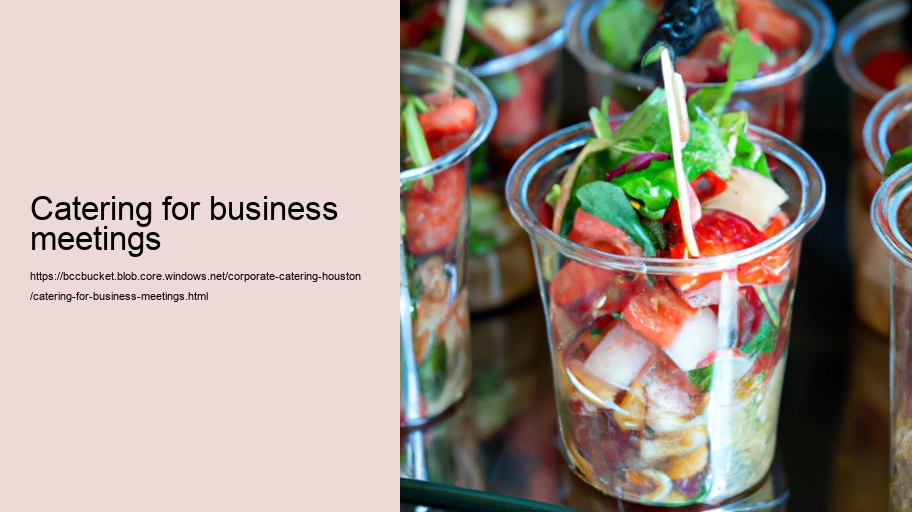Catering for business meetings is an essential aspect of corporate hospitality that ensures participants are well-fed, satisfied, and able to focus on the agenda at hand. It serves not just as a means to satiate hunger but also as a tool for fostering relationships, enhancing productivity, and creating an environment conducive to collaboration and creativity.
When we think about catering for business meetings, it's crucial to recognize that it extends beyond mere sustenance. The selection of food and beverages can significantly affect the energy levels, engagement, and overall mood of the attendees. A thoughtfully catered meeting can leave a lasting impression on clients and colleagues alike, reflecting the company's attention to detail and its commitment to quality.
Firstly, variety is key in catering. Dietary requirements such as vegetarianism, veganism, gluten-free options, or any allergies must be considered to accommodate all participants. Offering a range of dishes ensures that everyone has something they can enjoy. This inclusivity speaks volumes about a company’s values — showcasing sensitivity towards individual needs.
Moreover, the timing of food service plays a pivotal role in maintaining the flow of the meeting. Breakfast meetings typically require lighter fare such as pastries, fruit platters, and coffee; whereas lunch meetings may call for more substantial offerings like sandwiches or salads with protein options. For all-day conferences or extended sessions, providing snacks during breaks can help maintain concentration levels until the next full meal.
Presentation also matters greatly in business catering. Food should be arranged neatly and accessibly so that attendees can serve themselves without disruption or delay. Additionally, using high-quality utensils and serving dishes enhances the professionalism of the event.
In terms of cuisine choices for business catering events - simplicity often reigns supreme. While exotic dishes might seem appealing for their novelty value, familiar staples generally meet broader approval due to their wide acceptance among diverse palates.
Another critical aspect is portion control; it's important not only from a cost perspective but also from an attendee comfort standpoint — overly large portions can lead to post-lunch lethargy which could hamper productivity in afternoon sessions.
Furthermore, health-conscious options are increasingly popular at corporate gatherings. Fresh fruits instead of sugary desserts or sparkling water instead of soda provide refreshing alternatives that align with many individuals' preferences toward healthier lifestyles.
Beyond just food selection comes service excellence – having professional staff who are courteous yet unobtrusive helps maintain the formal tone expected at most business meetings while ensuring smooth logistics around meal times.
Lastly comes sustainability – environmentally conscious businesses often seek caterers who prioritize locally-sourced ingredients and eco-friendly practices such as minimal packaging waste or compostable serviceware which reflect positively on corporate social responsibility efforts.
In conclusion,catering for business meetings is much more than filling plates; it's about understanding guests’ needs while contributing positively towards achieving meeting objectives through careful planning,fine execution,and thoughtful consideration towards dietary preferences,presentation style,and environmental impact.To excel in this domain requires one part culinary expertise,two parts logistical planning,and three parts customer service finesse.Charting out these details meticulously guarantees not just satisfied stomachs but fruitful outcomes from every gathering satiated by exceptional catering services.
